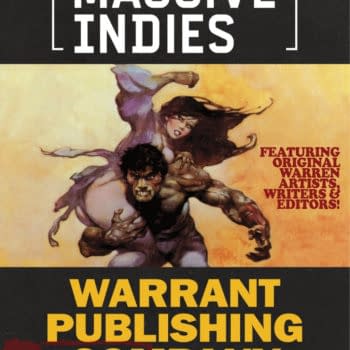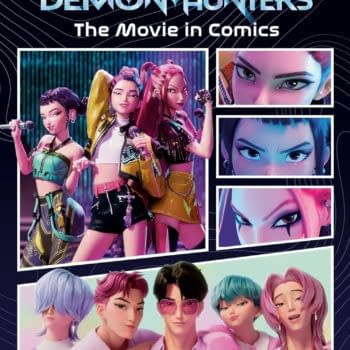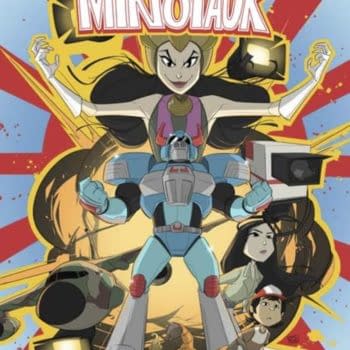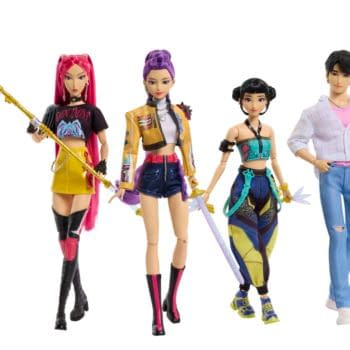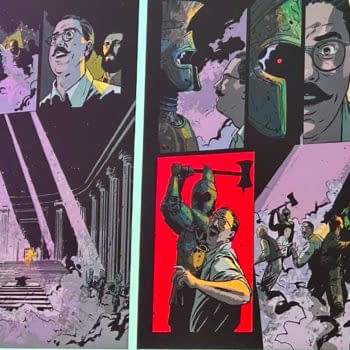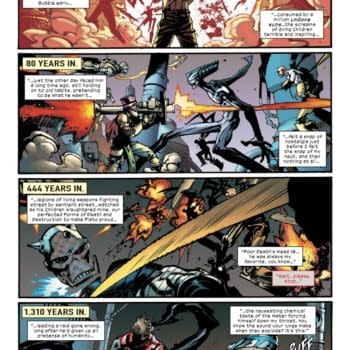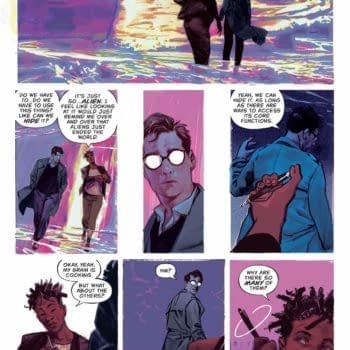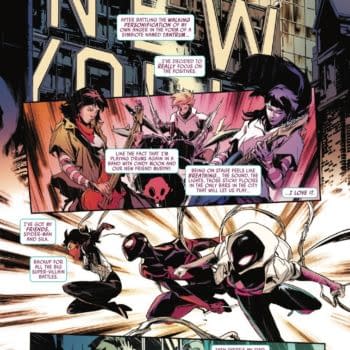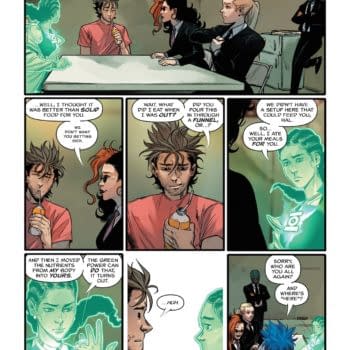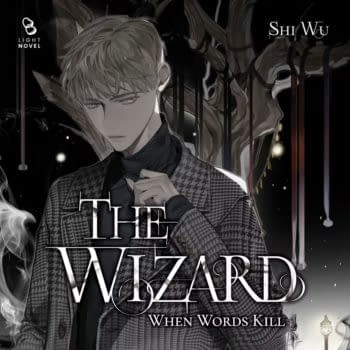Posted in: Comics, Recent Updates | Tagged: alex ross, cbldf, Comics, elephantmen, grendel, jh williams, liberty annual, matt wagner, shaky kane
JH Williams Strip From CBLDF Liberty Annual And A Chat With Charles Brownstein
Here's the Bleeding Cool segment of the CBLDF Liberty Annual 2011 spread. Expect to see more on other websites… but this bit is Bleeding Cool's! Get with the clicky.
The new Liberty Annual ships in October,with new stories by J. Michael Straczynski, Frank Quitely, J.H. Williams III, Steve Niles, Judd Winick , Mark Waid, Jeff Lemire, Carla Speed McNeil with Grendel by Matt Wagner, Cowboy Ninja Viking by AJ Lieberman and Riley Rossmo, Elephantmen by Richard Starkings and Shaky Kane, a full-colour story from Craig Thompson (Blankets)! and pin-ups of Batman by Dustin Nguyen, X-Men by Greg Land, Green Lantern by Ivan Reis, and the Avengers by Greg Horn, with covers by It's all topped off by John Cassaday, and Matt Wagner, with two chase variant covers by Frank Quietly.
So it's time for a wee chat with the Charles Brownstein, Executive Director of the CBLDF:
I asked him;
There's an argument I've come across, quite commonplace at San Diego, that the CBLDF doesn't matter, it's seen as a tax on the comics industry. That it only deals with the fringes of the industry, the child porn that should be tempered anyway. That the whole "they came for the Jews" argument doesn't apply now, that the big battles have been won and the CBLDF has outstayed it's welcome and is gaining a reputation for, pretty much, defending the rights of paedophiles. What are your thoughts?
I think the vast majority of comics retailers, graphic novel librarians, and creators would disagree with the notion that the CBLDF doesn't matter, and I think you see that with the support for projects like the Liberty Annual from Image, the Liberty Trading Cards from Cryptozoic, and our involvement in efforts like Banned Books Week. It's provocative to say the CBLDF has outstayed its welcome because we've contributed to winning some big battles, but it ignores the fact that there are still important battles we're in the midst of fighting.
The purpose of the CBLDF is to protect comics' First Amendment and Free Expression rights by fighting against bad laws and bad legal precedents that can affect those rights, and often that work occurs when defending unpopular speech. Our opponents routinely take prosecutors at their word and fixate on the allegation and the unpopular speech, rather than the core legal principles at issue.
Our current case, raising money to assist an American facing jail time in Canada because their customs authority is alleging that comics on his laptop are child pornography, is a perfect illustration of that.
This case is about an authority arbitrarily and without cause searching someone's books and devices, making an untrained determination about the character of some of the content on those devices, and wrapping it up in an accusation whose language is so loaded that people side against the defendant before they even read the facts. Just because an authority alleges something, that doesn't make the allegation true. Due process must apply, especially when someone's freedom and livelihood are at stake.
Defending this case isn't about defending the rights of pedophiles, it's about defending readers and artists against unreasonable searches and prosecution for the art they read and make. That's not an area where you want to take the authorities on their word, that's where one has an obligation to fight, because if you don't you can lose a lot of the advances you've made.
I think the slippery slope argument applies more than ever as we get into the area of United States citizens being prosecuted for what they read, whether it's books in their own homes or files on their devices. For instance, there's an entire generation who grew up reading manga in bookstores who are currently in college. If they still enjoy the art form, chances are they have a bunch of it on the same electronic devices that they have their school materials on, and chances are a lot of it is untranslated, uncensored, and not at all different from the material at issue in the Canada Customs case. Those kids are at risk when they cross a border to go to a party or visit a friend, and they don't even know it. That's just one reason why this case is important.
It's easy to take prosecutors at their word and sit out important fights because of an unfavorable allegation or unpopular speech. It's harder and more important to challenge them so that the rights we've won by fighting and winning the big battles you refer to don't erode.
And that's just one part of what CBLDF does. This year we also helped knock out bad laws in Massachusetts, Alaska, and California that would have affected the sale of comics in stores and online. We also helped librarians with challenges. We also helped artists with information about protecting themselves and their work in areas of copyright, trademark, and customs. And we did it with a few staffers and a lot of volunteers. That doesn't sound like an organization that's run its course, that sounds like a lean organization worthy of time and support.
We're glad organizations like Image and Legendary, through letting Bob Schreck helm this year's Liberty Annual, and artists like JH Williams think so by contributing the sterling work you see in this preview. And we're thrilled that you can see a whole lot more similarly minded creators speaking their piece about the importance of the work we do in the 2011 Liberty Annual as well.
The CBLDF Liberty Annual 2011 ships in October from Image. Do watch out for the Shaky Kane naked Elephantmen…









